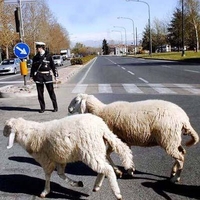Animal Mobilegalities
The Regulation of Animal Movement in the American City
DOI:
https://doi.org/10.52537/humanimalia.9969Abstract
The initial focus of “animobility” scholarship has been on the dynamic physical geographies of animals. This article extends the meaning of animobility to explore the ways in which animals are affected — and, in fact, constituted — by law, as well as the ways in which they affect and constitute law, which I call “mobilegalities.” Specifically, I ask how animobility in contemporary American cities translates into the animals’ legal mobility, and how laws can adapt to animobility and the ensuing mobilegality by setting “traps” that then immobilize the animals. This article demonstrates, finally, that law is not a static narrative that produces monophonic meaning, but a living process that feeds on, and depends upon, dynamic human-nonhuman assemblages. The different modes of classification discussed here — body, taxonomy, and law — provide a yardstick by which to think of the rigidity and flexibility of mobilegality itself, constituting a matrix for the mobilization of legality.
Downloads

Published
Issue
Section
License

This work is licensed under a Creative Commons Attribution-NonCommercial 4.0 International License.









